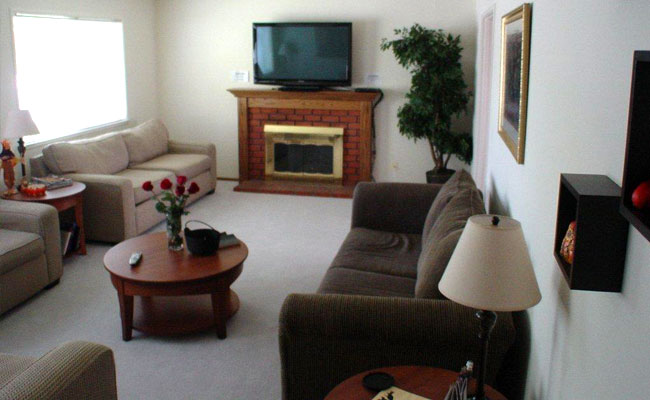Sober Living

Once you’ve admitted that you have a problem with drugs, have sought help in a quality addiction treatment program are ready to transition back into society, sober living provides a safe place to continue recovery. For many adults, addiction has led to a lack of family support, lack of a job or housing and a lack of financial means to live alone—this can make the transition out of treatment and back into society a difficult process. Many adults simply are not prepared to handle housing, bills and everyday life after treatment alone—sober living can help.
For help finding a sober living home near you, call 1-800-895-1695.
Relapse is most likely to occur within the first six months following treatment which means adults are in their most vulnerable state during this time. Sober living provides adults with additional support and care during this difficult time while also offering help with things like finding a job or staying on track financially. For adults who come out of treatment with limited career skills and little to no financial assets to provide for themselves, sober living is an opportunity for a smoother transition back into society.
What is Sober Living Like?
Many adults find that in order to stay sober once they leave the treatment program they must continue to be fully immersed in the plans and idea of sober living. This can be difficult to do if you don’t have a home or if you don’t receive adequate support from friends, family or other household members. Sober living provides these adults with a transitional approach where they can live with others who are also just getting their feet back on the ground with sobriety. Sober living environments are structured and supportive which means that those in recovery can continue to receive some monitoring, some structure and some support while also making the transition into society in which they will get back to work, begin to pay bills and live like other members of society.
A sober living house is often an affordable alternative to living alone. Because multiple recovering addicts will share a home, the costs of housing are significantly reduced which can make this transitional process a little bit easier on the recovering addict, especially those who must exit treatment with limited job skills and are faced with the challenges of finding work. Sober living homes operate under many of the same rules as inpatient rehabs in that members of the household must respect one another, are often required to continue to take part in counseling and therapy, maintain curfew and may also be subject to random drug or alcohol screening to ensure continued sobriety.
